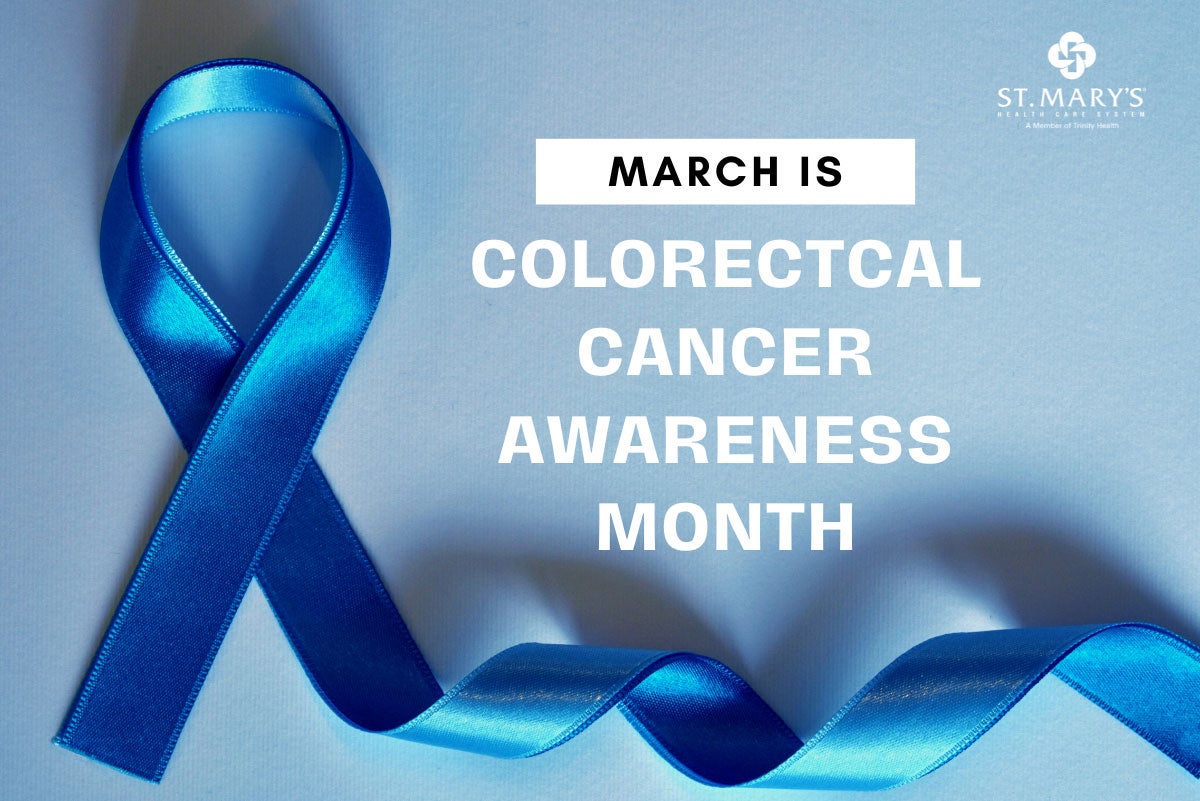Colorectal Cancer: What Is It and Why Is It Important
March 8, 2023Colorectal cancer is the second leading cancer killer in the United States.
Colorectal awareness month begins in March. It is the third most common form of cancer and the number 2 cause of cancer deaths in the U.S. One person every 10 minutes dies of colon and rectal cancer. It is important to understand colorectal cancer so you can take preventable measures.
What is colorectal cancer?
Colorectal cancer, often shortened to colon cancer, is a form of cancer that begins in the colon or rectum. An abnormal growth, called polyps, can form in the colon or rectum. Over time, the polyps can become cancerous. This cancerous growth can be anywhere in the final 5-10 feet of the intestine, where the colon and rectum reside.
The most common form of colon cancer is adenocarcinoma. Although polyps are typically benign, which means they are harmless, some polyps, like adenomas, can increase an individual’s risk for cancer. Adenocarcinomas occur in roughly 25-30% of individuals at age 50. The cancer can be identified through a colonoscopy, and then removed, making it preventable.
Why should I care about colorectal cancer?
One person every 10 minutes dies of colorectal cancer in the United States, which is about 52,000 people per year. It is the third most common cause of cancer death in women and second most common cause of cancer death of men in the United States.
But death is not the only negative outcome of colorectal cancer. Even when caught and treated early, patients who survive often experience significant impacts on their quality of life and their ability to do the things they love to do. Early detection and treatment of suspicious polyps can mitigate these impacts and improve outcomes for patients.
What are the signs and symptoms of colorectal cancer?
Although colon cancer does not display any symptoms until it has grown to a larger size, screening tests, like a colonoscopy, are the best method to detect abnormal growths while they are smaller and easier to treat. Common symptoms can include:
- Change in bowl movements, such as constipation or diarrhea
- Rectal bleeding or blood in stool
- Unexplained weight loss
- Weakness or fatigue
- Continuous abdominal pain or cramps
What can I do to help prevent colorectal cancer?
Colorectal cancer affects about 1 in 25 people in the United States. There are things you can do to help lower your risk.
- Get screened for colorectal cancer
- Incorporate fruits, vegetables, and whole grains into your diet
- Exercise regularly
- Stop smoking and limit alcohol consumption
What is my next step?
If you have symptoms that might indicate colorectal cancer, talk to your Primary Care Provider (PCP) as soon as possible. He or she can assess your symptoms and then refer you to a gastroenterologist or general surgeon, as appropriate. If you don't have a PCP, you can use our Find a Doctor website feature or call us at (706) 389-3892 to find one.
If you do not have symptoms and are 45-50 years of age, talk to your PCP at your next wellness visit about when you should have your first screening exam.
The general surgeons at Athens General and Colorectal Surgery, part of St. Mary's Medical Group, are highly skilled and experienced in performing colonoscopies and surgeries to treat colorectal cancer.




